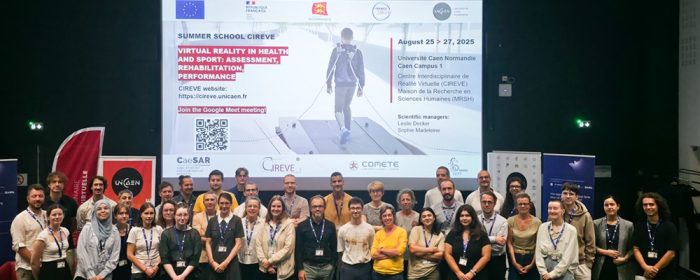On the occasion of the first World Nuclear Energy Summit held in Brussels on 21 March 2024 under the auspices of IAEA (the International Atomic Energy Agency) and the Belgian Presidency of the Council of the EU, the following universities, having convened at Maison Irène and Frédéric Joliot-Curie on the invitation of Université Caen Normandie, have agreed to investigate the conditions for establishing a European network for sectoral cooperation on nuclear skills, involving higher and secondary education institutions, research organisations and industry, and with the support of local authorities.
The primary aim of this joint initiative will be to bring together universities in Europe located in regional ecosystems offering comparable opportunities in terms of access to research-based training and teaching programmes, including lifelong learning, research infrastructures, and a wide range of career paths and jobs, requiring varied levels of qualifications.
As highlighted in a report from the French Presidency of the Council in 2022, “For a European dynamic in nuclear skills”, they acknowledge that there is a clear risk of a loss of expertise and skills in the nuclear field within the European Union in the years to come, given the past lack of investment and the existence of a generation gap.
Accordingly, in the wake of the National Nuclear Workforce Assessment Workshop co-organised by the Joint Research Centre/European Human Resources Observatory for the Nuclear field (EHRO-N) on 25 January, they reaffirm the need to define a common framework at European level, and move on to a new phase in order to implement joint, concrete actions designed to ensure the development of a skilled, diversified nuclear workforce for all member states involved in the “nuclear alliance” and beyond.
In addition, they share the conviction that upskilling and reskilling the nuclear workforce will not only benefit countries using nuclear energy but will also be strategically relevant for all Member States, as such an initiative will encompass activities related to new nuclear technologies like SMRs/AMRs, decommissioning, radioactive waste management, and non-energy applications, especially in the medical field.
Within the next 12 months, the partner universities will explore all possible forms of cooperation, including an alliance for sectoral cooperation on skills, a large-scale and regional partnership for skills or a skills academy.
First signatories:
- University of Bucharest (RO)
- Budapest University of Technology and Economics (HU)
- Université Caen Normandie (FR)
- Chalmers University (SE)
- Charles University (CZ)
- TU Darmstadt (DE)
- University of Groningen (NL)
- KU Leuven (BE)
- University of Sevilla (ES)
- Slovak University of Technology in Brastislava (SK)






